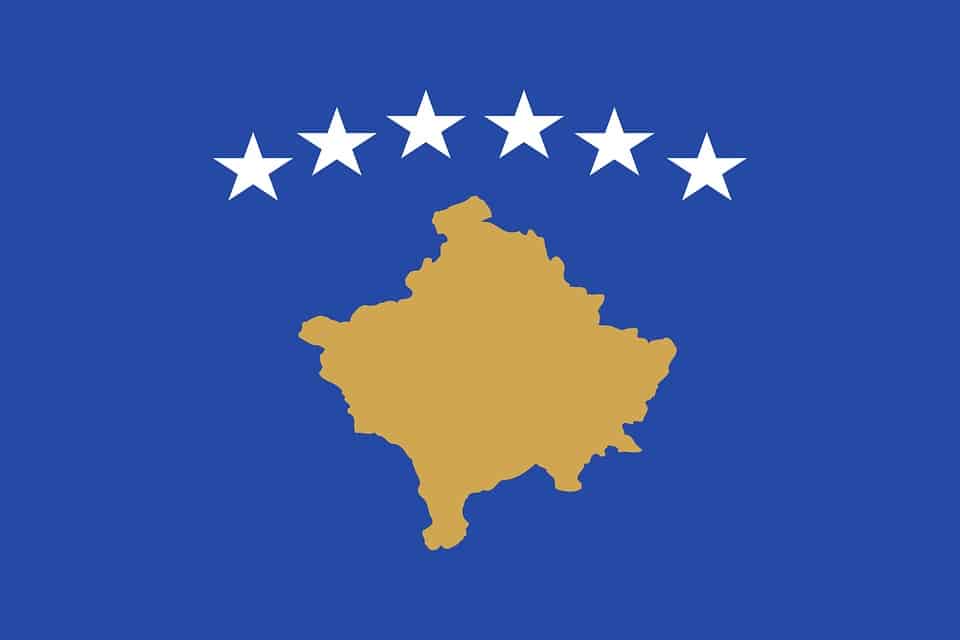On January 6th, acting Kosovo president Vjosa Osmani dissolved the Kosovo parliament and announced that new snap elections will be held on February 14th. The Constitutional Court ruled earlier on December 21st that Prime Minister Avdullah Hoti’s government is illegitimate because it was voted in by a majority that included a vote cast by an MP who was convicted of a criminal offense.
The Constitutional Court ruling
MP Etem Arifi was sentenced to one year and three months in prison on August 20th, 2019. He became an MP less than two months later, during snap parliamentary elections on October 6th, 2019. According to the Constitutional Court, “A person convicted of a criminal offence by a final court decision in the three last years cannot be a candidate for deputy or win a valid mandate in the Assembly of the Republic of Kosovo.”
This means that Arifi’s vote for Hoti’s government was therefore invalid. Arifi’s vote was one of the minimum 61 votes in favor of the Hoti government. Without Arifi’s vote, the government no longer holds a majority in the 120-seat parliament. The Court ruled that the government was invalid and called on Osmani to set a date for new elections, which are now set for February 14th.
Ex-PM Albin Kurti’s eligibility to run again
The decision by the Constitutional Court has also sparked a debate on whether the leader of the main opposition party Vetevendosje, ex-PM Albin Kurti, is eligible to run for parliament. In January 2018, four Vetevendosje MPs were given conditional prison sentences for throwing tear gas in parliament. At the time, the party opposed the then government’s agreements with Montenegro and Serbia. Despite this, Vetevendosje officials have said that Kurti will remain part of the candidates’ list.
Albin Kurti is currently seen as the front-runner to become Prime Minister. Kurti became PM on February 3rd, 2020, he won 184,000 voted in the last elections in 2019. Kurti’s government fell in March 2020 after a vote of no confidence. The direct cause for the no-confidence vote was Kurti’s dismissal of Interior Minister Agim Veliu, a member of the Democratic League of Kosovo (LDK), one of the coalition partners of Vetevendosje at the time. Along with this, many parties in parliament accused Kurti of authoritarianism, disrespecting the coalition and deteriorating relations with the US. Avdullah Hoti then became PM on June 3rd, 2020, after the Constitutional Court ruled that the second party was allowed to form a new government.
During his term, Avdullah Hoti signed an agreement with the US regarding normalizing economic ties with Serbia. Kosovo president Vjosa Osmani has already stated that she thinks Kosovo needs to rethink the agreements since Joe Biden is taking office. With a new government taking office in Kosovo as well, it is uncertain what will happen with the agreement signed in September 2020.
COVID-19 challenges for the election
Kosovo is now tackling the issues of organizing an election during the COVID-19 pandemic, as Kosovo authorities have been accused of having double standards for allowing political parties to gather. On December 22nd, the Kosovo government prohibited gatherings of more than four people in public spaces, specifically stating “gatherings in public spaces of all forms.”
Police have been fining Kosovo citizens for not respecting the COVID-19 measures, leading citizens to accuse the authorities of not following their own guidelines. Outgoing Prime Minister Hoti posted pictures on his Facebook page on which he is seen attending large gatherings as pre-election meetings. When asked about them he said that he has had meetings, but held them in the safest way possible with masks and halls that meet health criteria. He also stated that the law is the same for anyone without exceptions.
Sources: Balkan Insight 1, Balkan Insight 2, Balkan Insight 3, EWB, RFERL
Photo: Flickr



